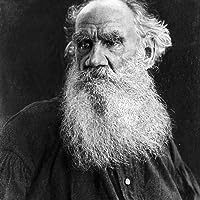Upbringing Quotes
Quotes tagged as "upbringing"
Showing 1-30 of 102

“Identity was partly heritage, partly upbringing, but mostly the choices you make in life. ~ Bran”
― Cry Wolf
― Cry Wolf

“It is so fatally easy to make young children believe that they are horrible.”
― The Once and Future King
― The Once and Future King

“When dealing with critics always remember this: Critics judge things based on what is outside of their content of understanding.”
―
―

“A child's growth is defined entirely by the adult that raises him.”
― Naoki Urasawa's Monster, Volume 3: 511 Kinderheim
― Naoki Urasawa's Monster, Volume 3: 511 Kinderheim

“Your actions will always be what the world sees, but people who choose to see through God's eyes will always have the compassion to understand why.”
―
―

“[The wives of powerful noblemen] must be highly knowledgeable about government, and wise – in fact, far wiser than most other such women in power. The knowledge of a baroness must be so comprehensive that she can understand everything. Of her a philosopher might have said: "No one is wise who does not know some part of everything." Moreover, she must have the courage of a man. This means that she should not be brought up overmuch among women nor should she be indulged in extensive and feminine pampering. Why do I say that? If barons wish to be honoured as they deserve, they spend very little time in their manors and on their own lands. Going to war, attending their prince's court, and traveling are the three primary duties of such a lord. So the lady, his companion, must represent him at home during his absences. Although her husband is served by bailiffs, provosts, rent collectors, and land governors, she must govern them all. To do this according to her right she must conduct herself with such wisdom that she will be both feared and loved. As we have said before, the best possible fear comes from love.
When wronged, her men must be able to turn to her for refuge. She must be so skilled and flexible that in each case she can respond suitably. Therefore, she must be knowledgeable in the mores of her locality and instructed in its usages, rights, and customs. She must be a good speaker, proud when pride is needed; circumspect with the scornful, surly, or rebellious; and charitably gentle and humble toward her good, obedient subjects. With the counsellors of her lord and with the advice of elder wise men, she ought to work directly with her people. No one should ever be able to say of her that she acts merely to have her own way. Again, she should have a man's heart. She must know the laws of arms and all things pertaining to warfare, ever prepared to command her men if there is need of it. She has to know both assault and defence tactics to insure that her fortresses are well defended, if she has any expectation of attack or believes she must initiate military action. Testing her men, she will discover their qualities of courage and determination before overly trusting them. She must know the number and strength of her men to gauge accurately her resources, so that she never will have to trust vain or feeble promises. Calculating what force she is capable of providing before her lord arrives with reinforcements, she also must know the financial resources she could call upon to sustain military action.
She should avoid oppressing her men, since this is the surest way to incur their hatred. She can best cultivate their loyalty by speaking boldly and consistently to them, according to her council, not giving one reason today and another tomorrow. Speaking words of good courage to her men-at-arms as well as to her other retainers, she will urge them to loyalty and their best efforts.”
― The Treasure of the City of Ladies
When wronged, her men must be able to turn to her for refuge. She must be so skilled and flexible that in each case she can respond suitably. Therefore, she must be knowledgeable in the mores of her locality and instructed in its usages, rights, and customs. She must be a good speaker, proud when pride is needed; circumspect with the scornful, surly, or rebellious; and charitably gentle and humble toward her good, obedient subjects. With the counsellors of her lord and with the advice of elder wise men, she ought to work directly with her people. No one should ever be able to say of her that she acts merely to have her own way. Again, she should have a man's heart. She must know the laws of arms and all things pertaining to warfare, ever prepared to command her men if there is need of it. She has to know both assault and defence tactics to insure that her fortresses are well defended, if she has any expectation of attack or believes she must initiate military action. Testing her men, she will discover their qualities of courage and determination before overly trusting them. She must know the number and strength of her men to gauge accurately her resources, so that she never will have to trust vain or feeble promises. Calculating what force she is capable of providing before her lord arrives with reinforcements, she also must know the financial resources she could call upon to sustain military action.
She should avoid oppressing her men, since this is the surest way to incur their hatred. She can best cultivate their loyalty by speaking boldly and consistently to them, according to her council, not giving one reason today and another tomorrow. Speaking words of good courage to her men-at-arms as well as to her other retainers, she will urge them to loyalty and their best efforts.”
― The Treasure of the City of Ladies

“Tatlo ang magulang ng henerasyon natin. Ang tatay, ang nanay, at ang mga patalastas o media. Kaya kung mahina yung dalawang nauna, naagawan sila ng ikatlo sa pagpapalaki sa bata.”
― Lumayo Ka Nga Sa Akin
― Lumayo Ka Nga Sa Akin

“My sister's bringing up had made me sensitive. In the little world in which children have their existence whosoever brings them up, there is nothing so finely perceived and so finely felt, as injustice. It may be only small injustice that the child can be exposed to; but the child is small, and its world is small, and its rocking-horse stands as many hands high, according to scale, as a big-boned Irish hunter. Within myself, I had sustained, from my babyhood, a perpetual conflict with injustice. I had known, from the time when I could speak, that my sister, in her capricious and violent coercion, was unjust to me. I had cherished a profound conviction that her bringing me up by hand, gave her no right to bring me up by jerks. Through all my punishments, disgraces, fasts and vigils, and other penitential performances, I had nursed this assurance; and to my communing so much with it, in a solitary and unprotected way, I in great part refer the fact that I was morally timid and very sensitive.”
― Great Expectations
― Great Expectations
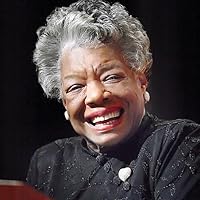
“My mother's gifts of courage to me were both large and small. The latter are woven so subtly into the fabric of my psyche that I can hardly distinguish where she stops and I begin.”
― Mom & Me & Mom
― Mom & Me & Mom

“There's a great power of imagination about these little creatures, and a creative fancy and belief that is very curious to watch . . . I am sure that horrid matter-of-fact child-rearers . . . do away with the child's most beautiful privilege. I am determined that Anny shall have a very extensive and instructive store of learning in Tom Thumbs, Jack-the-Giant-Killers, etc.”
―
―

“The Christian commitment is a journey inviting multiple conversions.”
― The Journey: Spiritual Growth in Galatians and Philippians
― The Journey: Spiritual Growth in Galatians and Philippians
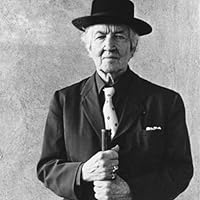
“To resist the social pressure now put even on one's leisure time, requires a tougher upbringing and a more obstinate willfulness about going one's own way, than ever before.”
―
―

“If you would have a boy to despise his mother, let her keep him at home, and spend her life in petting him up, and slaving to indulge his follies and caprices.”
― The Tenant of Wildfell Hall
― The Tenant of Wildfell Hall

“In fact, the mothers of all her girl friends impressed on their daughters the necessity of being helpless, clinging, doe-eyed creatures. Really, it took a
lot of sense to cultivate and hold such a pose.”
― Gone with the Wind
lot of sense to cultivate and hold such a pose.”
― Gone with the Wind

“You have been adopted. You are God’s beloved sons and daughters. Do you really think God is waiting to attack you on a technicality? Do you really think God has a continuous chip on his shoulder?”
― The Journey: Spiritual Growth in Galatians and Philippians
― The Journey: Spiritual Growth in Galatians and Philippians

“Что ни говори, воспитание - великая вещь. Если мальчишку десяти лет учили быть человеком, он не позволит себе долго смотреть волчонком на тех, кто не виноват в его беде.”
― Выстрел с монитора. Гуси-гуси, га-га-га...
― Выстрел с монитора. Гуси-гуси, га-га-га...

“Some kids are raised in a mess," Ada said, "and they say, 'When I'm on my own, I'll be neater than God.' Others are raised in a mess and they say, 'Life is a mess, looks like, and that's just the way it is.' It's got nothing to do with their upbringing.”
― Redhead by the Side of the Road
― Redhead by the Side of the Road
“Person's behavior reflects nothing but the mirror of an aura he/she brought up in. Never doubt their integrity because of their insecurities.”
―
―

“This is the true inheritance tax of life. Behaviours and habits, ingrained, your own but not your own, a duty on your existence, a tariff to be levied on those who try to love you.”
― Just Ignore Him
― Just Ignore Him
“Emotions are never a problem! The problem is our biased attitude towards emotions. Since childhood we're taught to categorize emotions into 'good' and 'bad' and participate in the never-ending race of sieving out bad emotions and conquering the good - happiness, to be more specific. Whereas, sadness, anger, enthusiasm, anxiety, fear, confidence, or the state of being disconnected are all different forms of emotions and are equally important for our existence as human beings. Would you call a person who laughs the whole day and is happy about everything hundred percent sane? Rather than spending each moment of our lives until death to just 'live happily ever after', it would be much easier to just learn to accept our emotions and cherish them. You can't just paint your canvas with a single color and call it a modern art!”
―
―
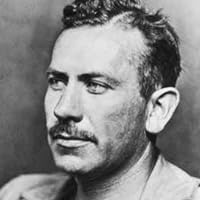
“I think this is the best known story in the world because it is everybody's story. I think it is the symbol story of the human soul. I'm feeling it my way now, don't jump on me if I'm not clear. The greatest terror a child can have is that he is not loved, and rejection is the hell he fears. I think everyone in the world to a large or small extent has felt rejection. And with rejection comes anger, and with anger some kind of crime in revenge for the rejection, and in crime guilt - and there is the story of mankind. I think that if rejection could be amputated, the human would not be what he is. Maybe there would be fewer crazy people. I am sure in myself there would not be many jails. It is all there - the start, the beginning. One child is refused the love he craves, kicks the cat and hides his secret guilt; and another steals so that money will make him loved and a third conquers the world - and always the guild and revenge and more guilt. The woman is the only guilty animal. Now wait! Therefore I think this old and terrible story is important because it is a chart of the soul - the secret, rejected, guilty soul.”
― East of Eden
― East of Eden

“I think my parents did a better job of raising me than I did of raising my own kids.”
― Man from Nebraska
― Man from Nebraska
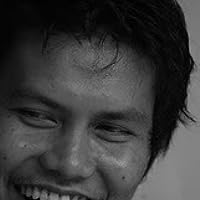
“Nama itu akan jadi perjumpaan sekaligus perpisahan sang anak dengan asal usulnya. Dia tidak akan mengingkari dari mana dia berasal.”
― Komsi Komsa
― Komsi Komsa

“I would sooner have had that kind of upbringing than be like the left-wing intellectuals who are so 'enlightened' that they cannot understand the most ordinary emotions.”
― Selected Essays
― Selected Essays

“A healthy upbringing is the foundation for good families, productive communities, progressive political cultures, and decent human beings. It all begins at home, and I firmly stand by this belief.”
― Why Sell Lies When The Truth Is Free
― Why Sell Lies When The Truth Is Free

“A combination of television and the stresses peculiar to two-income or single-parent families has swallowed up most of what used to be family time as well. Our kids have no time left to grow up fully human and only thin-soil wastelands to do it in.”
― Dumbing Us Down: The Hidden Curriculum of Compulsory Schooling
― Dumbing Us Down: The Hidden Curriculum of Compulsory Schooling
All Quotes
|
My Quotes
|
Add A Quote
Browse By Tag
- Love Quotes 97k
- Life Quotes 75.5k
- Inspirational Quotes 72.5k
- Humor Quotes 43.5k
- Philosophy Quotes 29.5k
- Inspirational Quotes Quotes 27k
- God Quotes 26k
- Truth Quotes 23.5k
- Wisdom Quotes 23.5k
- Romance Quotes 23k
- Poetry Quotes 22k
- Death Quotes 20k
- Happiness Quotes 18.5k
- Life Lessons Quotes 18.5k
- Hope Quotes 18k
- Faith Quotes 18k
- Quotes Quotes 16.5k
- Inspiration Quotes 16.5k
- Spirituality Quotes 15k
- Religion Quotes 15k
- Motivational Quotes 15k
- Writing Quotes 14.5k
- Relationships Quotes 14.5k
- Life Quotes Quotes 14k
- Love Quotes Quotes 13.5k
- Success Quotes 13.5k
- Time Quotes 12.5k
- Motivation Quotes 12k
- Science Quotes 11.5k
- Knowledge Quotes 11k

